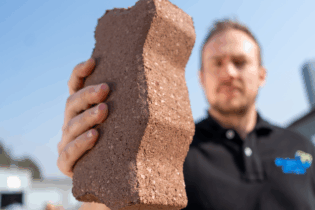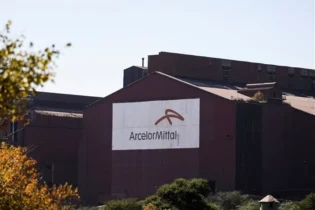National Asphalt has captured the attention in the Kwazulu-Natal asphalt market with further improvements to their Durban (Cliffdale) based plant yet again.
According to Deon Pagel, business development manager at National Asphalt, the company were not 100% satisfied with the outcome of the upgrade that was done around a year ago. The initial upgrade included the retro fitting of a bag house to new twin drum drying and mixing units whilst making use of an existing multi-clone system as a primary emission controller. “While we are very aware of emission standards as per the new regulations that are targeted for ultimate final implementation by 2019, we are keen and indeed on track to meet these sooner rather than as required by legislation” explains Pagel. “The new upgrade includes a state of the art horizontal skimmer used as a primary emission controller together with alterations to the air ducting and https://infrastructurenews.co.za/wp-admin/edit.phpbag house, all to improve the air flow, bag house temperatures and overall efficiency. Being at the forefront of the development and implementation of Warm Mix Asphalt (WMA) technology in the local market we also made use of the opportunity to improve the method of introducing reclaimed asphalt (RA) into the mixes to be as high as 40%” he continues. State of the art technologyEduardo Landolt, production and operations manager at National Asphalt tells IMIESA that the company has not yet tested all aspects of the new upgrade due to the huge demand of regular mixes on current contracts and also due to the critical shortage of bitumen. “We are also awaiting the arrival of our new state-of-the-art foaming device,” he points out.
“While National Asphalt became well known for the ‘foam pot’ that was developed in-house and used with great success during and after the WMA trials, to increase production and availability of this mix a decision was made to invest in a foaming device that has proven itself in the international markets. This foaming device will be integrated into the current plant control setup and will be available at the push of a button. One shortcoming of the in-house device was that it had to be removed when foaming was not required,” he continues to explain. The issue of imported bitumen
Media coverage towards the end of November last year highlighted the role that National Asphalt played in the importation of the first shipload of bitumen ever into South Africa. The decision to import was made in spite of the fact that the bitumen was landed at a premium price – a decision which later proved to be very well received by clients due to National Asphalt being able to continue the supply of asphalt into critical projects when the local refineries experienced problems. The current interruptions in the supply of bitumen have again highlighted the fact that the local refineries ageing infrastructure has proven to not be reliable.
To this effect National Asphalt has also commissioned a Johannesburg based steel manufacturing company to manufacture a bitumen drum decanting facility for future importation of bitumen in drums.
According to Sean Pretorius, managing director of National Asphalt, it is understood that very often one of the local refineries is exporting bitumen while not supplying the local market.
“We hear that in certain circumstances this is done due to the product being out of specification, whereas with the high level of in house technical expertise and without detracting from the performance of the mix the possibility exists for us to modify the bitumen and use on certain contracts, thus alleviating some of the supply problems. The uncertainty with regards to the supply of bitumen from the South African refineries is a concern and is being addressed with Government at the highest level,” he explains. “If only Government would lift the import duties on bitumen it would level the playing fields and industry could then import more freely and competitively. At the recent 10th Conference on Asphalt Pavements in Southern Africa (CAPSA) an Australian delegation shared their importation model with delegates and the majority of the bitumen used in Australia is now imported. If it works there why not here?” he asks. The launch of an asphalt rejuvenatorNational Asphalt remains at the forefront of research into new products and it is therefore not surprising that the company is about to commercially launch a locally produced 100% natural asphalt rejuvenator and WMA additive. “Our EcoNat development is now complete and the first full scale trials to produce WMA have proven that we have a winner” says Wynand Nortje, technical manager at National Asphalt.
“This product also has the ability to take us to the next level of temperature reduction to Half Warm Mixes that will be manufactured between 70ºC and 100ºC. A different variant of the EcoNat is also in its final stages of analysis and testing and will be used as a releasing agent on asphalt trucks, pavers and rollers”, he continues. The product is blended in a special “tank” that was developed and designed with input from an American company and manufactured for National Asphalt by Kenzam in Johannesburg. But it’s not always just hard work at National Asphalt and this was proven also at the recent CAPSA conference where sister company, Akasia Road Surfacing, joined forces to enable sponsorship of the main event. Part of evening’s proceedings was an extremely powerful video that was projected with 3 x 3D projectors and a huge amount of accompanying “sound”. The video gave an overall view of the companies and about CAPSA and whilst the duration was only about four minutes it was afterwards spoken about for a long time and in fact is still often mentioned due to its striking effect. Those who were part of over 500 attendees to the conference went away with invaluable additional knowledge and the event will long be remembered for its success.






